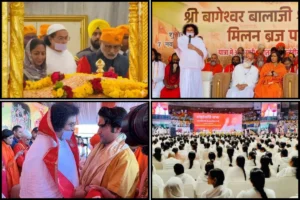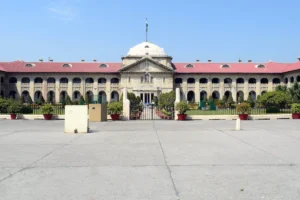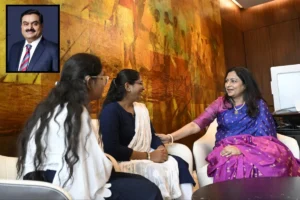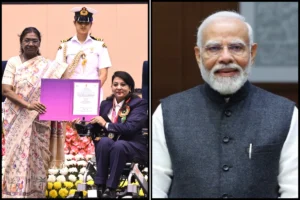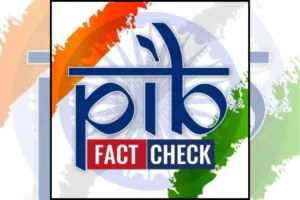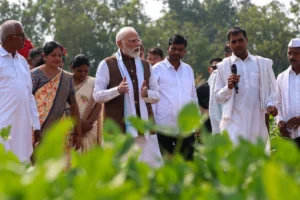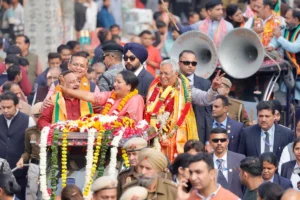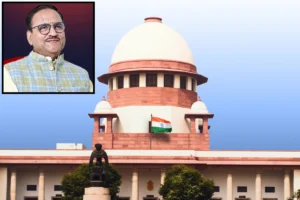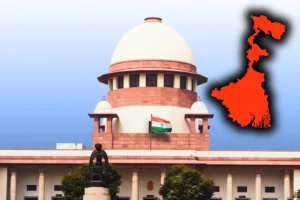
Vivek-Ramaswamy
Vivek Ramaswamy is a Republican presidential candidate for the 2024 election, who has recently unveiled his foreign policy platform at the Nixon Library. Ramaswamy is a self-made billionaire, a former biotech entrepreneur, and a vocal critic of woke capitalism and big tech censorship. He advocates for an “America comes first” foreign policy that prioritizes the national interests and values of the United States over globalist agendas and moral crusades. He also proposes a “modern Monroe Doctrine” that focuses on the regions where the U.S. has a direct stake and cuts off ties with countries that do not serve its long-term interests.
The main purpose of this essay is to explain why I like Vivek Ramaswamy’s foreign policy stance and how it is in the best interest of the United States and the rest of the world. The essay will also compare and contrast his foreign policy vision with that of the current Biden administration and other potential rivals in the 2024 race. The essay will use facts and data from various sources, such as news articles, reports, speeches, and interviews, to support its arguments and findings.
The main argument or thesis statement of this essay is that Vivek Ramaswamy’s foreign policy stance is realistic, pragmatic, and strategic, as it recognizes the changing dynamics and challenges of the global order and seeks to advance the U.S.’s leadership and influence in a competitive and complex world. His foreign policy stance also reflects his commitment to preserving the American dream, exceptionalism, and sovereignty, as well as promoting freedom, democracy, and human rights around the world.
I will provide some examples of how Vivek Ramaswamy’s foreign policy stance is in the best interest of the United States and the rest of the world.
Ending the war in Ukraine: Ramaswamy has proposed a bold and pragmatic solution to end the ongoing conflict in Ukraine, which has claimed over 13,000 lives and displaced over 1.4 million people since 2014.
He has suggested that the U.S. should freeze the current lines of control, reopen economic relations with Russia, and offer a hard commitment that NATO will not admit Ukraine in return for Russia exiting its military partnership with China, removing nuclear weapons from Kaliningrad, and ending its military presence in the Western Hemisphere. This would be a reverse maneuver of what Nixon accomplished with Mao in 1972, when he normalized relations with China to counterbalance the Soviet Union. Ramaswamy’s plan would not only de-escalate the tensions between the U.S. and Russia, but also weaken the strategic alliance between Russia and China, which poses a major threat to the U.S. and its allies in the Indo-Pacific region. Moreover, it would also respect the sovereignty and territorial integrity of Ukraine, while allowing it to pursue its own economic and political development.
Focusing on the Western Hemisphere: Ramaswamy has also advocated for a modern Monroe Doctrine, which would focus on the regions where the U.S. has a direct stake and cut off ties with countries that do not serve its long-term interests. He has argued that the U.S. should prioritize its relations with its neighbors in North America, Central America, and South America, as well as with key allies in Europe and Asia. He has also called for ending the U.S. involvement in Afghanistan, Iraq, Syria, and other countries in the Middle East and Africa, where he believes the U.S. has wasted trillions of dollars and thousands of lives without achieving any meaningful results. Ramaswamy’s approach would enable the U.S. to focus on its core interests and values, while avoiding unnecessary entanglements and interventions in regions where it has no vital stake or influence. It would also allow the U.S. to strengthen its partnerships with like-minded democracies and counter the rising authoritarianism and aggression of China, Russia, Iran, and other adversaries.
Promoting freedom, democracy, and human rights: Ramaswamy has also expressed his commitment to promoting freedom, democracy, and human rights around the world, especially in countries that are facing oppression and persecution from tyrannical regimes. He has condemned the Biden administration for abandoning the people of Cuba, Hong Kong, Taiwan, Tibet, Xinjiang, and other places that are struggling for their freedom and dignity. He has pledged to stand with them and support their aspirations for self-determination and autonomy. He has also criticized the Biden administration for rejoining the Iran nuclear deal and lifting sanctions on Tehran, which he says will only embolden the Iranian regime to continue its nuclear ambitions, sponsorship of terrorism, and repression of its own people. He has vowed to withdraw from the deal and reimpose sanctions on Iran until it changes its behavior and respects human rights.
To conclude the essay, I will restate the main argument and summarize the main points and findings of the essay. I will also provide some recommendations or suggestions for future research or action on the topic. Here is a possible conclusion for the essay:
Vivek Ramaswamy’s foreign policy stance is realistic, pragmatic, and strategic, as it recognizes the changing dynamics and challenges of the global order and seeks to advance the U.S.’s leadership and influence in a competitive and complex world. His foreign policy stance also reflects his commitment to preserving the American dream, exceptionalism, and sovereignty, as well as promoting freedom, democracy, and human rights around the world. The essay has analysed the reasons and factors behind his foreign policy vision and how it is in the best interest of the United States and the rest of the world. The essay has also compared and contrasted his foreign policy platform with that of the current Biden administration and other potential rivals in the 2024 race.








